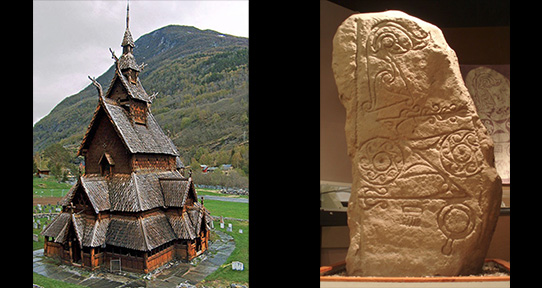Myths and Legends of the Middle Ages

This thematic introduction to selected myths and legends of the medieval world will emphasize heroes, fantastic animals, other-worldly beings and syncretic myth-making practices. Topics will include contexts for the use(s) of heroic and fantastic stories in various cultural and faith traditions (including Scandinavian, Chinese and Islamic); the relationship(s) between textual and visual depictions of heroes and fantastic stories; and the resonance of medieval heroism and the fantastic in contemporary societies. This course will emphasize scholarly approaches to medieval and modern renderings of myth and legend. Upon completion of MEDI 200, students will be apprised of the variety and use of heroic and fantastic stories in the medieval world.
This course will emphasize scholarly approaches to medieval myth and legend (including mythical and religious syncretism) and the stories’ resonance in contemporary society. Evaluation will comprise a mid-term examination (definitions, short-answers and image-identification—30%); an object/text assignment, exploring the intersection(s) of a myth or legend in medieval textual and visual culture—20%); a collaborative assignment addressing the influence of medieval myth and legend on contemporary arts and entertainment (20%); and a final examination (definitions, short-answers and image-identification—30%). Upon completion of MEDI 200, students will be apprised of the variety of mythical and legendary stories from Celtic, Germanic and Christian traditions that circulated in medieval Europe. Specific learning outcomes will include knowledge of the contexts for the uses of pagan stories and motifs; comprehension of the pagan calendar’s influence on the establishment of Christian holy days; and the relationship between fantasy medieval worlds and popular conceptions of the European Middle Ages. Methods of instruction will include lecture, class-discussion and collaborative investigation.
Read about the instructor.
